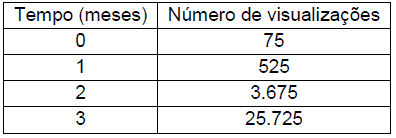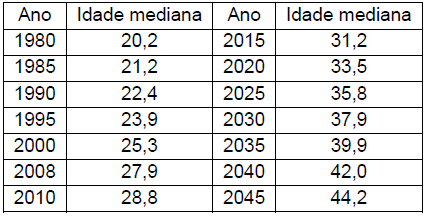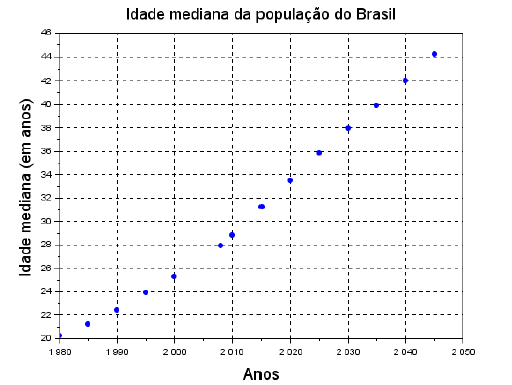Questões de Concurso Público Prefeitura de Vargem Bonita - SC 2020 para Professor de Inglês
Foram encontradas 30 questões
THE SCIENCE OF PERSUASION
Persuasion is key to business and to much more besides. In many walks of life and in many situations, persuading people to do what you want them to do is the key to success. Is persuasion a science with rules that can be taught and learnt, or is it simply a matter of instinct and personal experience? Researchers have looked into different aspects of persuasion and come up with some interesting results.
One advertising copywriter, for example, came up with an approach to selling a product on a TV shopping channel via phones sales that differed from the norm for such advertising. Instead of being instructed: ‘Operators are waiting, please call now’, viewers were told ‘If operators are busy, please call again’. This might appear to have been a risky tactic, putting potential buyers off by suggesting that they would have to waste their time calling repeatedly until they finally got through to someone to take their order. But the results were extraordinary and an unprecedented number of sales resulted. The advert suggested that instead of there being lots of operators sitting there and hoping people would call, there were so many people who wanted the product that people might have to wait until they could get it. This showed just how desirable the product was. Potential customers decided that, if so many other people wanted it, they definitely wanted it too.
What role does choice have in persuading
people to buy or get something? One study looked
at the choices employees made when offered
different retirement programmes. This showed that
the more choices people were given, the less likely
they were to choose anything at all. Another study
in a supermarket revealed a similar effect of choice.
A particular supermarket displayed either 6 or 24
different kinds of jam. When there were 24 jams to
choose from, 3% of customers went to the display
and bought one of the jams. When there were 6
jams on display, 30% of customers did so. […]
I. Viajou no feriado, foi à praia com os novos amigos.
II. A prefeitura ressaltou, a chamada dos concursados imediatamente.
III. Os candidatos chegaram cedo, e a sala estava fechada.
IV. Muitas vezes, o candidato encontra-se nervoso.
I. Após ler o edital, adquiri uma apostila com os conteudos da prova.
II. Os candidatos mantêm postura adequada também quanto ao uso de aparelho telefônico.
III. O candidato mantém postura adequada também quanto ao uso de aparelho telefônico.
IV. Referente à prova, ninguém poderá lê-la antes da hora.
Assinale a alternativa que contém apenas assertivas corretas:
I. As candidatas estavam ............................. nervosas durante a prova.
II. .......................... muitos anos que não há concurso público para minha função.
III. ........................... poucos candidatos para aquela vaga de advogado.
IV. Levarei a ata de presença ..................................... às provas.

Sendo V(t) o número de visualizações depois de t meses, qual modelo representa o número de visualizações, em função do tempo, nos três primeiros meses após a postagem do vídeo?
I. O ângulo θ = 5π/12 radianos, ao ser convertido para graus, torna-se θ = 75°.
II. Os valores de cos(180°) e sen(180°) são, respectivamente, -1 e 0.
III. Se sen(α) = 1/2 e cos(α) = √3/ 2 , então tg(α) = √3/3.
É correto o que se afirma apenas em:

Os mesmos dados da tabela estão representados no gráfico a seguir:

Com base nos dados apresentados na tabela e no gráfico pode-se afirmar que
English Language Day
What is English Language Day?
De acordo com o artigo, analise as assertivas a seguir:
I. A Língua Portuguesa é uma das línguas oficiais da ONU.
II. Acredita-se que Shakespeare nasceu e morreu na mesma data.
III. Shakespeare cunhou os termos “quebrar o gelo” e “o amor é cego”.
IV. No século XI, francês era a língua oficial no Reino Unido.
É correto apenas o que se afirma em:
English Language Day
What is English Language Day?
I. Awarness -> consciência Achievements -> conquistas Developed -> desenvolveu Changes -> mudanças
II. Settled -> consciência Achievements -> conquistas Developed -> desenvolveu Changes -> mudanças
III. Creativity -> criatividade Achievements -> conquistas Gossip -> desenvolveu Changes -> mudanças
IV. Awarness -> consciência Achievements -> conquistas Developed -> desenvolveu Chosen -> escolhido
Assinale a alternativa que contém apenas traduções corretas.
English Language Day
What is English Language Day?
“He (Shakespeare) also invented phrases like ‘break the ice’, ‘all our yesterdays’, ‘fainthearted’ and ‘love is blind’.”
Assinale a alternativa que indica a voz passiva da frase acima.
THE SCIENCE OF PERSUASION
Persuasion is key to business and to much more besides. In many walks of life and in many situations, persuading people to do what you want them to do is the key to success. Is persuasion a science with rules that can be taught and learnt, or is it simply a matter of instinct and personal experience? Researchers have looked into different aspects of persuasion and come up with some interesting results.
One advertising copywriter, for example, came up with an approach to selling a product on a TV shopping channel via phones sales that differed from the norm for such advertising. Instead of being instructed: ‘Operators are waiting, please call now’, viewers were told ‘If operators are busy, please call again’. This might appear to have been a risky tactic, putting potential buyers off by suggesting that they would have to waste their time calling repeatedly until they finally got through to someone to take their order. But the results were extraordinary and an unprecedented number of sales resulted. The advert suggested that instead of there being lots of operators sitting there and hoping people would call, there were so many people who wanted the product that people might have to wait until they could get it. This showed just how desirable the product was. Potential customers decided that, if so many other people wanted it, they definitely wanted it too.
What role does choice have in persuading
people to buy or get something? One study looked
at the choices employees made when offered
different retirement programmes. This showed that
the more choices people were given, the less likely
they were to choose anything at all. Another study
in a supermarket revealed a similar effect of choice.
A particular supermarket displayed either 6 or 24
different kinds of jam. When there were 24 jams to
choose from, 3% of customers went to the display
and bought one of the jams. When there were 6
jams on display, 30% of customers did so. […]
THE SCIENCE OF PERSUASION
Persuasion is key to business and to much more besides. In many walks of life and in many situations, persuading people to do what you want them to do is the key to success. Is persuasion a science with rules that can be taught and learnt, or is it simply a matter of instinct and personal experience? Researchers have looked into different aspects of persuasion and come up with some interesting results.
One advertising copywriter, for example, came up with an approach to selling a product on a TV shopping channel via phones sales that differed from the norm for such advertising. Instead of being instructed: ‘Operators are waiting, please call now’, viewers were told ‘If operators are busy, please call again’. This might appear to have been a risky tactic, putting potential buyers off by suggesting that they would have to waste their time calling repeatedly until they finally got through to someone to take their order. But the results were extraordinary and an unprecedented number of sales resulted. The advert suggested that instead of there being lots of operators sitting there and hoping people would call, there were so many people who wanted the product that people might have to wait until they could get it. This showed just how desirable the product was. Potential customers decided that, if so many other people wanted it, they definitely wanted it too.
What role does choice have in persuading
people to buy or get something? One study looked
at the choices employees made when offered
different retirement programmes. This showed that
the more choices people were given, the less likely
they were to choose anything at all. Another study
in a supermarket revealed a similar effect of choice.
A particular supermarket displayed either 6 or 24
different kinds of jam. When there were 24 jams to
choose from, 3% of customers went to the display
and bought one of the jams. When there were 6
jams on display, 30% of customers did so. […]